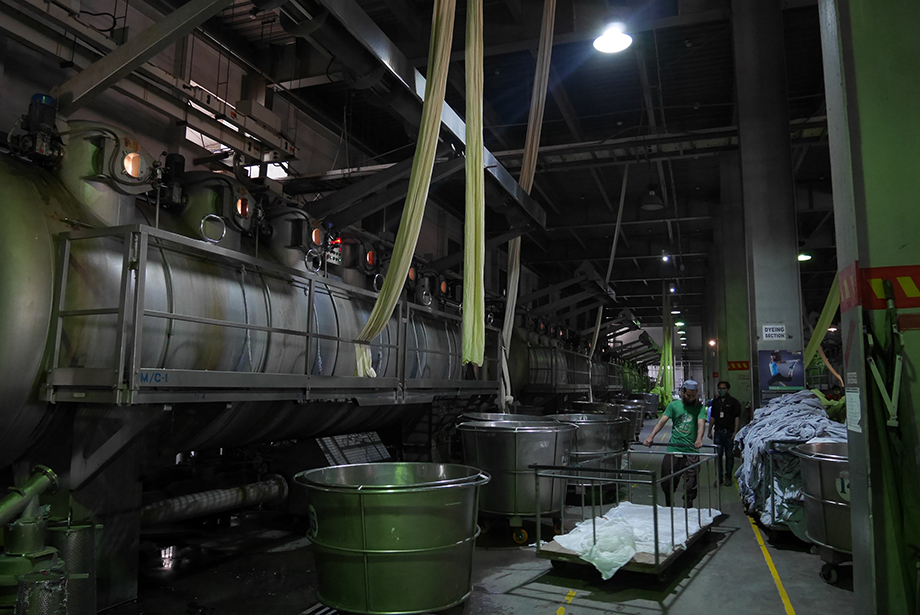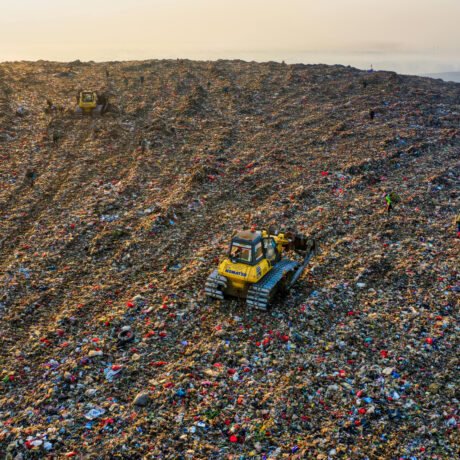New Inquiry: Sustainability of the Fashion Industry
The Environmental Audit Committee is launching an inquiry into the sustainability of the fashion industry.
The Committee will investigate the social and environmental impact of disposable ‘fast fashion’ and the wider clothing industry. The inquiry will examine the carbon, resource use and water footprint of clothing throughout its lifecycle. It will look at how clothes can be recycled, and waste and pollution reduced.
Mary Creagh MP, Chair of the Environmental Audit Committee, said:
“Fashion shouldn’t cost the earth. But the way we design, make and discard clothes has a huge environmental impact. Producing clothes requires toxic chemicals and produces climate-changing emissions. Every time we put on a wash, thousands of plastic fibres wash down the drain and into the oceans. We don’t know where or how to recycle end of life clothing.
“Our inquiry will look at how the fashion industry can remodel itself to be both thriving and sustainable.”
The growth of the fashion industry
According to a 2015 report from the British Fashion Council, the UK fashion industry contributed £28.1 billion to national GDP, compared with £21 billion in 2009.[1] The globalised market for fashion manufacturing has facilitated a “fast fashion” phenomenon; cheap clothing, with quick turnover that encourages repurchasing.

Environmental impact of clothing production
Clothing production consumes resources and contributes to climate change. The raw materials used to manufacture clothes require land and water, or extraction of fossil fuels. Clothing production involves processes which require water and energy and use chemical dyes, finishes and coatings – some of which are toxic. Carbon dioxide is emitted throughout the clothing supply chain. In 2017 a report by the Ellen MacArthur Foundation on ‘redesigning fashion’s future’ found that if the global fashion industry continues on its current growth path, it could use more than a quarter of the world’s annual carbon budget by 2050.
Environmental impact of purchase, use and disposal
Synthetic fibres used in some clothing can result in ocean pollution. Research has found that plastic microfibres in clothing are released when they are washed, and enter rivers, the ocean and the food chain.

Sustainability issues also arise when clothing is no longer wanted. A report by the Ellen MacArthur Foundation found that the growth of clothes production is linked to a decline in the number of times a garment is worn. Clothes disposed of in household recycling and sent to landfill instead of charity shops have an environmental impact, such as contributing to methane emissions. Charities have complained that second hand clothes can be exported and dumped on overseas markets. The UK Government has a commitment to ‘Sustainable Production and Consumption’ under UN Sustainable Development Goal 12.
Manufacturing in the UK
In recent years there has been a renewed interest in clothing that has been made in Britain. However there are concerns that the need for quick turn-around in the supply chain to facilitate the demand for “fast fashion” has led to poor working conditions in UK garment factories.
The Committee will also examine the sustainability of garment production in relation to the UK’s social and environmental commitments under the UN Sustainable Development Goals. The UK Government has a commitment to ensuring ‘Decent work and economic growth’ by protecting labour rights and promoting safe and secure working environments for all workers under UN Sustainable Development Goal 8.
Terms of Reference
The Committee invites submissions on some or all of the following points by 5 pm on Monday, 3rd September 2018.
Environmental impact of the fashion industry
- Have UK clothing purchasing habits changed in recent years?
- What is the environmental impact of the fashion supply chain? How has this changed over time?
- What incentives have led to the rise of “fast fashion” in the UK and what incentives could be put in place to make fashion more sustainable?
- Is “fast fashion” unsustainable?
- What industry initiatives exist to minimise the environmental impact of the fashion industry?
- How could the carbon emissions and water demand from the fashion industry be reduced?
Waste from fashion
- What typically happens to unwanted and unwearable clothing in the UK? How can this clothing be managed in a more environmentally friendly way?
- How much unwanted clothing is landfilled or incinerated in the UK each year?
- Does labelling inform consumers about how to donate or recycle clothing to minimise environmental impact, including what to do with damaged clothing?
- What actions have been taken by the fashion industry, the Government and local authorities to increase reuse and recycling of clothing?
- How could consumers be encouraged to buy fewer clothes, reuse clothes and think about how best to dispose of clothes when they are no longer wanted?
Sustainable Garment Manufacturing in the UK
- How has the domestic clothing manufacturing industry changed over time? How is it set to develop in the future?
- How are Government and trade envoys ensuring they meet their commitments under SDG 8 to “protect workers’ rights” and “ensure safe working environments” within the garment manufacturing industry? What more could they do? Are there any industry standards or certifications in place to guarantee sustainable manufacturing of clothing to consumers?

Deadline for submissions
Written evidence should be submitted through the inquiry page by 5 pm on Monday, 3rd September 2018. The word limit is 3,000 words. Later submissions will be accepted, but may be too late to inform the first oral evidence hearing. Please send written submissions using the form on the inquiry page.
Diversity
The Committee values diversity and seek to ensure this where possible. We encourage members of underrepresented groups to submit written evidence. We aim to have diverse panels of Select Committee witnesses and ask organisations to bear this in mind if asked to appear.
Further information
- Guidance: written submissions (including information on data protection)
- About Parliament: Select committees
- Visiting Parliament: Watch committees
Membership of the Committee:
http://www.parliament.uk/business/
committees/committees-a-z/commons-select/environmental-audit-committee/membership/
Media Information: Sean Kinsey kinseys@parliament.uk/ 07917 488791
Specific Committee Information: eacom@parliament.uk/ 020 7219 6150
Committee news and reports, Bills, Library research material and much more can be found at www.parliament.uk. All proceedings can be viewed live and on-demand at www.parliamentlive.tv
Photo credits:
Houses of Parliament and Garment Factory in Bangladesh by Carry Somers
Ocean by Ross Miller








